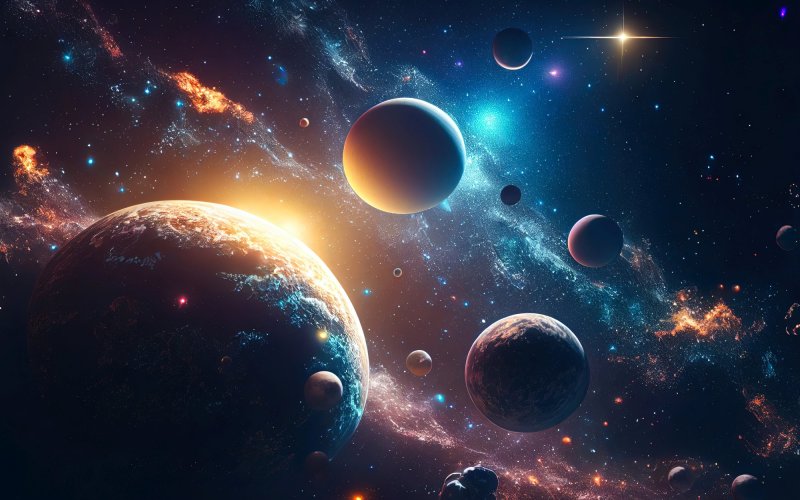I’m afraid that with my knowledge I won’t be able to give a perfectly accurate answer and quite possibly no one knows the exact answer.
Actually, no one knows it, because I don’t know that it would be possible to unify the two fundamental theories that describe the origin of the Universe (and of course also the further development, but not in such a close connection) — quantum physics and the general theory of relativity.
I will try to answer according to my knowledge but I would like to say first that the description will be very simplified, because in order to understand the origin of the Universe, a deep study is needed (certainly deeper than the study of a physics teacher).
At a point (called a singularity) that had a lot of energy, the energy was converted into matter.
This still happens, although in a significantly smaller amount.
There is also the opposite action, in which we convert matter into energy (for example, burning wood or nuclear reactions) and both of these actions are described by Einstein’s famous equation E = mc2.
During this action, matter and antimatter were created and it is (probably not only for me) quite strange that there was (probably) more matter than antimatter — that is why our Universe is material and did not disappear.
At the same time, our four-dimensional space (x, y, z and time axes) was created.
We call this whole thing the big bang.
Since time and space were created at the big bang, it makes no sense to solve exactly where the singularity was (there was no space before the big bang) and even what was before the big bang (there was no time).
The Universe (which means our space) began to expand rapidly, it went through various phases until the present.
I find it extremely interesting that we are able to describe the Universe, which was created roughly 14 billion years ago (probably correctly, because we have evidence that confirms our theory) up to the so-called Planck time — 5.391 × 10−44 seconds.
So our knowledge of the Universe is in the range of 0.0000000000000000000000000000000000000005 seconds to 400000000000000000 (4.35 × 1017 seconds).
The fact that we cannot describe the Universe from time 0 s (although we are very close) is only related to what I wrote at the beginning of the answer — we have not managed to connect quantum physics and general relativity.
If we succeed (if it is even possible), not only our knowledge of the beginning of the Universe, but also of physics in general will advance and our technological possibilities will expand.
Want to ask something?
Send us an e-mail with the subject “Physics mysteries” to the address:
We can't wait to tackle your interesting questions!





